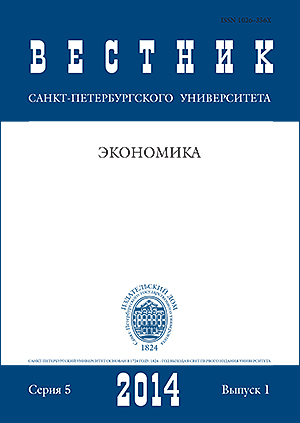Are Asset Markets Efficient? Evidence from Economic Experiments
Abstract
The assumed superiority of market economy compared with central planning is based on the belief that markets are able to aggregate disperse information about production costs and demand of goods in the form of efficient market prices. Asset markets and futures markets for commodities and assets are believed to evaluate expected future developments — as far as this is possible in the face of fundamental uncertainties. Market failure exists (e.g. because of market power or externalities)
and has to be coun- teracted by state intervention (e.g. cartel authorities or Pigou taxes), but, in principle, free markets are assumed to be the optimal institution. Is this always true, in particular also for asset markets which seem to have a tendency to inflate “bubbles” for which there are many large scale examples? Experimental investigations of asset markets show that, in most cases, market prices “ultimately” converge to optimal Rational Expectation prices. Markets are able to aggregate disperse information, but this process needs particular bubbles, is reported. The most important determinant for the prevention of bubbles is personal experience. Refs 48. Figs 5.
Keywords:
Asset markets, efficiency, Rational Expectations, experimental research
Downloads
References
References in Latin Alphabet
Translation of references in Russian into English
Downloads
Published
How to Cite
Issue
Section
License
Articles of the St Petersburg University Journal of Economic Studies are open access distributed under the terms of the License Agreement with Saint Petersburg State University, which permits to the authors unrestricted distribution and self-archiving free of charge.






